Research News
15 December 2022
3mE wins both second and fourth place in Best Tech-idea 2022
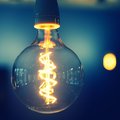
08 December 2022
Nastaran Barin has developed a promising tool for studying brain cancer mechanobiology
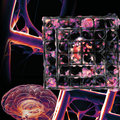
Understanding the mechanobiology of glioma cells is of paramount importance for prospective treatment screening of this brain tumour. Nastaran Barin and Angelo Accard developed, in a joint effort with Erasmus MC, biomimetic 3D structures via two-photon polymerization and cultured therein patient derived glioma cells.
06 December 2022
IDE alumni take 1st and 3rd place in 2022 KVK Innovatie Top 100
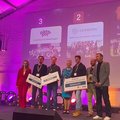
IDE alumni-founded companies SenseGlove and Pieter Pot take 1st and 3rd place in the 2022 KVK Innovatie Top 100.
30 November 2022
Research from TU Delft in the Rijksmuseum

A smart alternative to the traditional sandbag and an experiment with clay to learn more about strengthening dikes. These are two examples of TU Delft research that is currently being exhibited as art at the Rijksmuseum.
29 November 2022
In search of the coveted safe, better, longer-lasting battery: BatteryNL
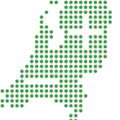
Everyone who works on the development of batteries in the Netherlands, small companies, multinationals and knowledge institutes, has joined together in the BatteryNL consortium to develop the next generation of batteries within eight years based on a better understanding of material interfaces. Prof. M. (Marnix) Wagemaker (TU Delft - Faculty of Applied Sciences) is the project leader of a €9.3 million project funded by NWO-ORC.
28 November 2022
Investing in knowledge pays off
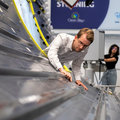
Without innovation ecosystems such as TU Delft Campus the Dutch economy would be smaller and less resilient, says the British research agency BiGGAR Economics.
22 November 2022
Saskia van Heumen TU Delft Best Graduate 2022

Saskia van Heumen has been voted TU Delft’s Best Graduate 2022 for her outstanding research on the use of LED photoacoustics in treating Lymphoedema.
22 November 2022
ERC Starting Grant for Ali Akyildiz
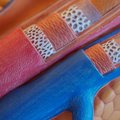
The European Research Council has awarded an ERC Starting Grant to Ali Akyildiz. Akyildiz’s research focusses on cardiovascular biomechanics, specifically individual people’s susceptibility to cardiovascular events, such as heart attack and stroke, due to biomechanical failure in their blood vessels. This 1.5 million euros grant is to cover the costs of a five-year research programme, and is awarded to researchers who are at the start of their career, but have already excelled in a promising line of research.
22 November 2022
Fossil free fuels for floating power plants
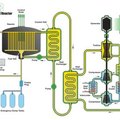
TU Delft, the Netherlands and Seaborg Technologies, Denmark, started a one year project on the investigation of fuel molten salt chemistry for the development of an innovative molten salt nuclear reactor design. The researchers at TU Delft are Dr Anna Smith (Associate Professor) and Lukasz Ruszczynski (Postdoc). Seaborg Technologies’ vision is to deliver clean, cost-competitive, and safe energy with their promising Compact Molten Salt Reactor (CMSR) concept.
22 November 2022
OpenSim Creator: Empowering biomedical research with biomechanical models wins CZI EOSS Award
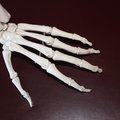
Ajay Seth has been awarded a Chan Zuckerberg Initiative (CZI) grant of US$ 350,000 to develop his project, OpenSim Creator. This open-source biomechanical simulator will enable researchers worldwide to create accurate neuromuscular and musculoskeletal models within hours, enabling better and faster responses to biomedical questions about human and animal mobility.
17 November 2022
Electric technology to save energy in drying processes

Scientists of TU Delft and four other Dutch universities join forces to save energy in drying processes. In the ELECTRIFIED project, the researchers will use the power of electricity and electrical fields to develop breakthrough technologies for large energy savings in industrial drying processes.
15 November 2022
Eight health professors receive double appointment simultaneously
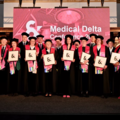
Today, eight professors were simultaneously inaugurated as "Medical Delta professors" at Leiden University, LUMC, TU Delft, Erasmus University and/or Erasmus MC. With an appointment of two or more of these five academic institutions, they combine technology and healthcare in their professorships.
14 November 2022
Can robots invent tools like our ancient ancestors did?
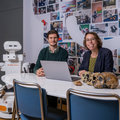
How did ancient humans learn to make tools? And can we apply that knowledge to help AI-based robots learn creative skills? Carlos Hernandez Corbato and Geeske Langejans are heading up the TU Delft part of the multi-national METATOOL project, which is a unique combination of archaeology, neuroscience and robotics.
10 November 2022
Successful demo of long-range remotely-controlled vessels
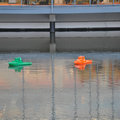
The first fully-automated demo of AVATARs - autonomous emission-free waterways vessels - took place on the pond in front of the 3mE building. Three model-scaled vessels neatly demonstrated their manoeuvrability, precision controlled turning and steering capabilities thanks to long-range Wi-Fi and 4G communications and newly-developed AI directed collision-avoidance technology.
08 November 2022
Vacuuming-up rare metals from the deep sea floor
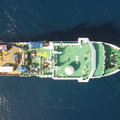
At the bottom of the ocean lie lumps of valuable metals such as copper, manganese, nickel and cobalt - materials crucial to accelerating the energy transition. A collaboration between five European countries called ‘Blue Harvesting,’ has designed and now tested a new collector that can gather these nodules from the deep sea bottom with minimal disturbance to the natural environment.